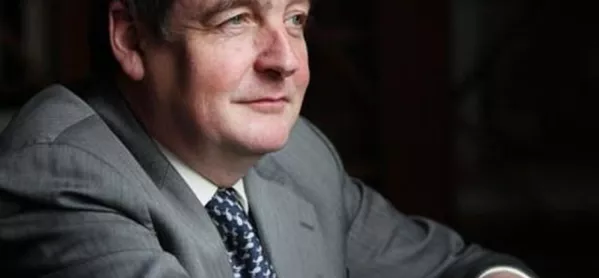We can all agree on this: we’re facing an acute teacher shortage. Outgoing Ofsted boss Sir Michael Wilshaw currently blames, in part at least, the “brain drain” of teachers heading off abroad to enjoy the superior conditions and exoticism of the ever-growing multitude of English-medium, British-style international schools opening all over the world, many sponsored by, and spreading the brands of, UK independent schools.
Sir Michael is miffed that, having trained these teachers at government expense, the country loses out when they head off to teach elsewhere. The reasoning goes like this. Pay for their training and you’ll get them started. Make them comfortable by, say, paying off their student loans, and they’ll be grateful and stay. Lock them into a contract of some sort that makes them repay those benefits if they leave within the first few years, and you’ve got them nailed down.
The thinking is flawed. As initial teacher training has been pushed down to school level, central government has entirely withdrawn from the process. Michael Gove suspected university education departments of political indoctrination and of promulgating educational theories (in his paranoid view, daft ones) instead of concentrating on basic teaching skills and throwing would-be teachers in at the deep end, Teach First-style.
Fortunately the profession has managed to subvert the plan to remove research and theory from the process. Most teaching schools have the sense to involve university departments within their partnerships. I’ve felt for a decade and more that I’ve never seen better prepared teachers coming into the profession after a year’s PGCE; I’m not seeing any decline even under the new arrangements.
Nonetheless, by fragmenting the system we’ve lost a vital element. It appears government has little clue how many teachers are training, or in what subjects, and it has no real strategy for addressing, for example, the chronic shortage of maths teachers.
The National Health Service is coping with nurse shortages by recruiting in the Philippines where, insider friends tell me, the training is excellent - but we can offer better terms and conditions here.
It’s less easy with teaching: there’s the problem of language. And yet, surely we can trawl other Anglophone countries? What about Canada? America? Even Australia or New Zealand?
They wouldn’t come. Teachers here feel badly treated and demoralised: even Sir Michael said to the select committee that “so much that we hear [about teachers] is negative - the workload, it’s a difficult job, badly behaved children etc.” Mind you, he blames the unions for perpetuating the poor image.
He went on to plead for an effort to talk up “one of the most noble jobs in the world”. Good suggestion: there is a need to do so. But policymakers and commentators need to be told why that need exists.
Good employees don’t clock-watch, but carry on till the job’s done. Excellent employees go the extra mile, see what needs doing and, again, see it through. Most teachers do both, all the more because they are responding to the needs of their pupils, of the children in their care.
Teachers don’t receive bonuses: nor do they demand them. But they do have a human need to be appreciated, to be stroked a little in recognition of the extra they put in.
Government is learning only with painful slowness that it cannot hope to get the best out of doctors by cutting their pay (because it is doing so) and lying about the true nature of its restructuring. Similarly it will never build goodwill among the teaching profession (nor prevent any perceived brain drain) while carping about the shortcomings of schools, imposing crude business-style performance measures and making them labour under the constant threat of a hostile inspectorate.
I’m deeply concerned about the future of the profession and therefore of our schools. If teachers are looking abroad for better treatment, we must blame not them but decades of hostility, pressure and relentless, ill-planned change from successive governments.
If we’re serious about retaining the teachers we train, let alone tempting them back from warmer climes, we must recognise their membership of a noble profession and treat them better: and that ambition demands more than merely paying off their student debts.
Dr Bernard Trafford is headteacher of Newcastle upon Tyne Royal Grammar School and a former chairman of the Headmasters’ and Headmistresses’ Conference. The views expressed here are personal
@bernardtrafford
Join the debate on TES Community
Want to keep up with the latest education news and opinion? Follow TES on Twitter and like TESon Facebook




